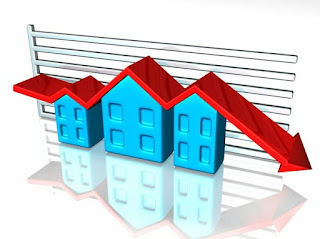Calculate how much a down payment will be, then set up a savings schedule that is co-ordinated with your paydays
Are visions of owning coming back into your sights again as the housing market chills out a little? Follow these money tips if buying is in your near-ish future.
Trim your budget busters pronto
Now is not the time for food waste, unnecessary subscriptions and impulse buying. Go through your spending line by line and find your most important priorities for spending. If it’s super important (and makes you happy), keep it. If it’s not, reallocate that money toward savings towards that eventual home purchase and paying off consumer debt. You won’t want to be balancing a mortgage alongside credit card balances. If you’re not yet putting 10 per cent of your take home pay toward clearing debt, it’s time to make that happen, too. You’ll be pleased that your credit score will also improve as you make progress on your debts, and a higher score could help land you a better rate in the mortgage approval process, according to NerdWallet.
Start saving for your down payment much sooner than you think
Calculate how much a 10 to 20 per cent down payment will be, then set up a savings schedule that is co-ordinated with your paydays. That might mean putting $500 or $1,000 per paycheque into a safe cashable GIC or a high-interest savings account tucked within your TFSA, RRSP or eventually the new tax-Free First Home Savings Account (FHSA), which was recently introduced by the Liberal government; rates have gone up on savings accounts and GICs.
Saving a down payment takes time so set a savings goal of up to five years to raise the money. Anything further out than that timeline gets a bit blurry and hard to plan for.
Get creative if you’re buying into an aggressively priced market
Most millennial buyers cannot afford their dream home right away, unless they are getting assistance from family, which I highly encourage if it’s possible. But, by getting your foot in the door with a smaller condo or townhouse in a great location, you can start building up equity and move to your dream home later down the road. It’s OK to shift your vision to a lower price point.
You can also look for income potential with your purchase, like a rental suite, an extra parking stall or storage space. By generating income from the property you can better manage your cash flow, pay off your mortgage faster and possibly allocate more savings towards retirement. There are downsides to take into account like the fact that you’ll be on call 24/7 if something goes wrong like a burst pipe.
According to a recent poll by The Star it’s becoming more common for millennial and Gen Z buyers to buy with friends and family to help share the costs, and also to get the support of a co-signer to help qualify for the mortgage. Just be aware these relationships can have strings attached, so clear up how these non-traditional arrangements are going to work before you sign on the dotted line.
Protect yourself now and as a future homeowner
There are two ways to protect yourself and your family for eventual home ownership. First, have life insurance. According to RBC Insurance there are two myths out there that first; life insurance is way too expensive (it’s actually much more affordable than you might think and the younger you are, the cheaper it is); and second; that you might not need it if you don’t have kids. But if you’re a millennial, I know your age, and know you have some assets and debts which means I can almost guarantee you need it by this point in your life. So, fit it into your budget even if you have to trim from somewhere else.
The second way to protect yourself is to have a rainy-day fund so that in an emergency, you have something to fall back on. It takes time to build this up, so stick with it with regular contributions each pay.
There’s not much you can do about rising rates and high inflation, so focus on what you can control. My final three concluding tips for soon-to-be-buyers are; 1) Don’t buy too much house. This can leave you house rich but cash poor with little money to save, let alone have fun. 2) Don’t forget to budget for closing costs. Budget 1.5 to 4 per cent of your home’s purchase price towards closing costs, such as home inspection, land transfer tax and real estate lawyer fees. 3) Set your mortgage-free date (for many this is 25 years out, but it could be sooner).
Are you looking to buy or sell property? If you’d like, we can have a real estate expert show you the most efficient process that saves you thousands of dollars, a lot of time, with little or no inconvenience to you. Contact us today!


